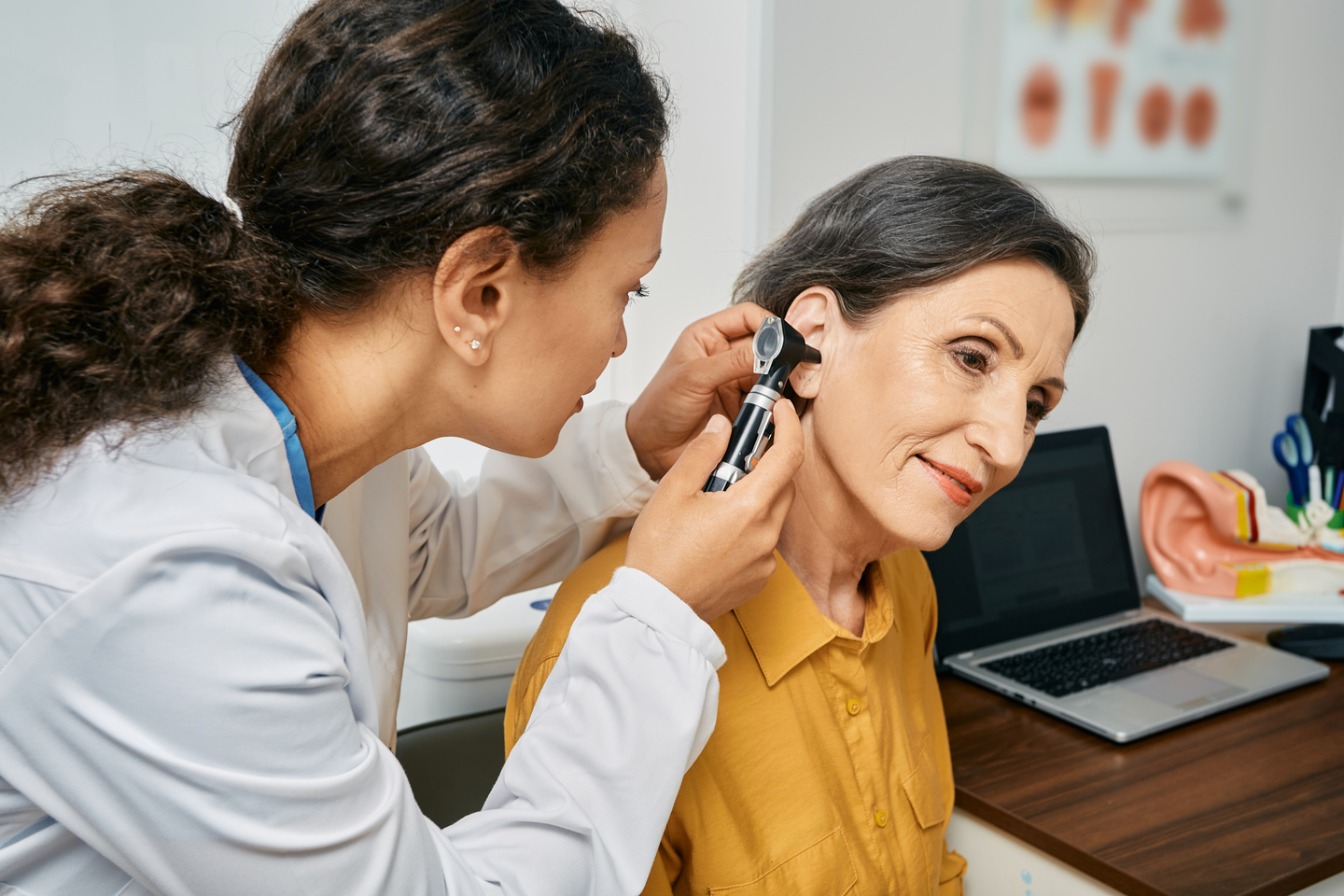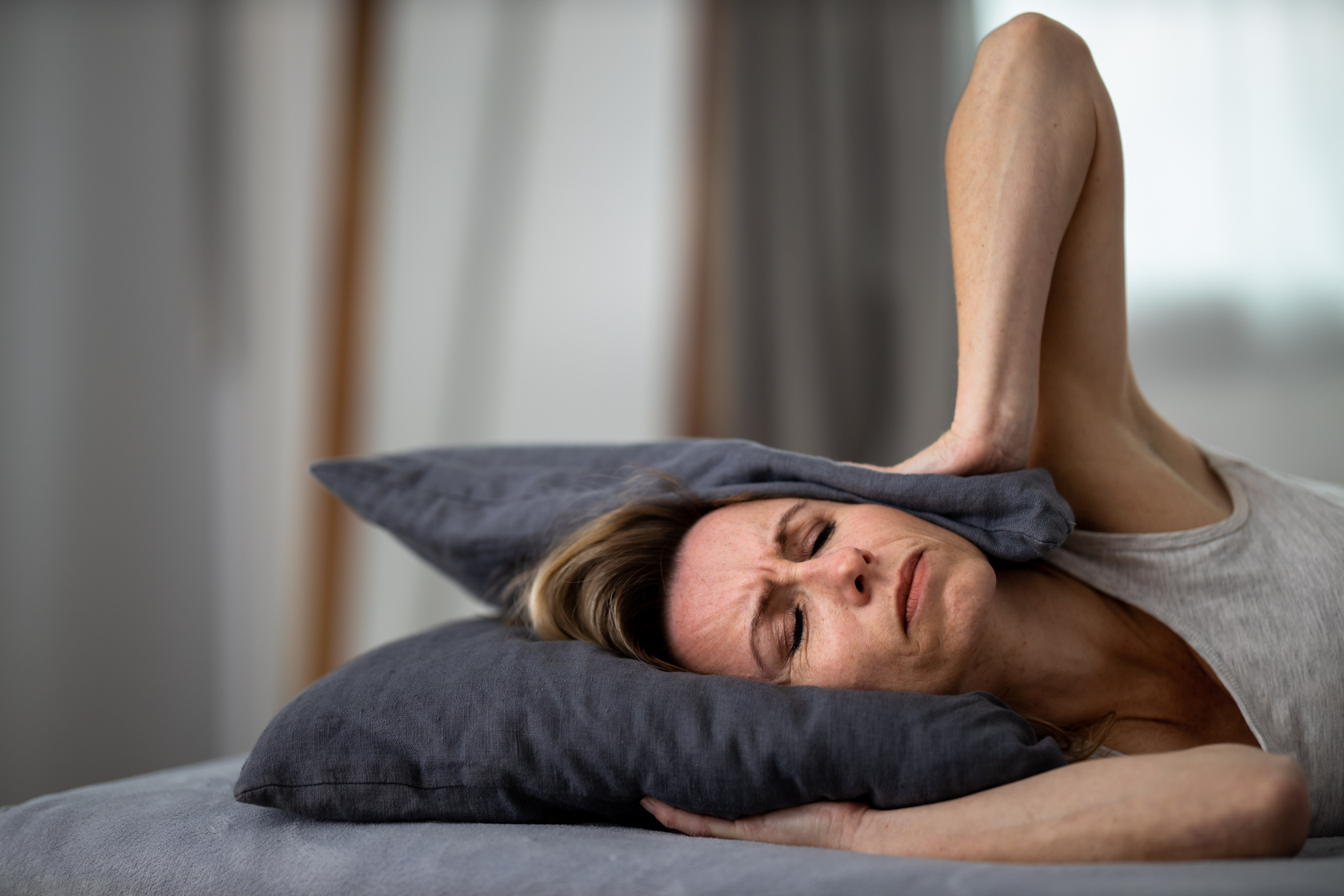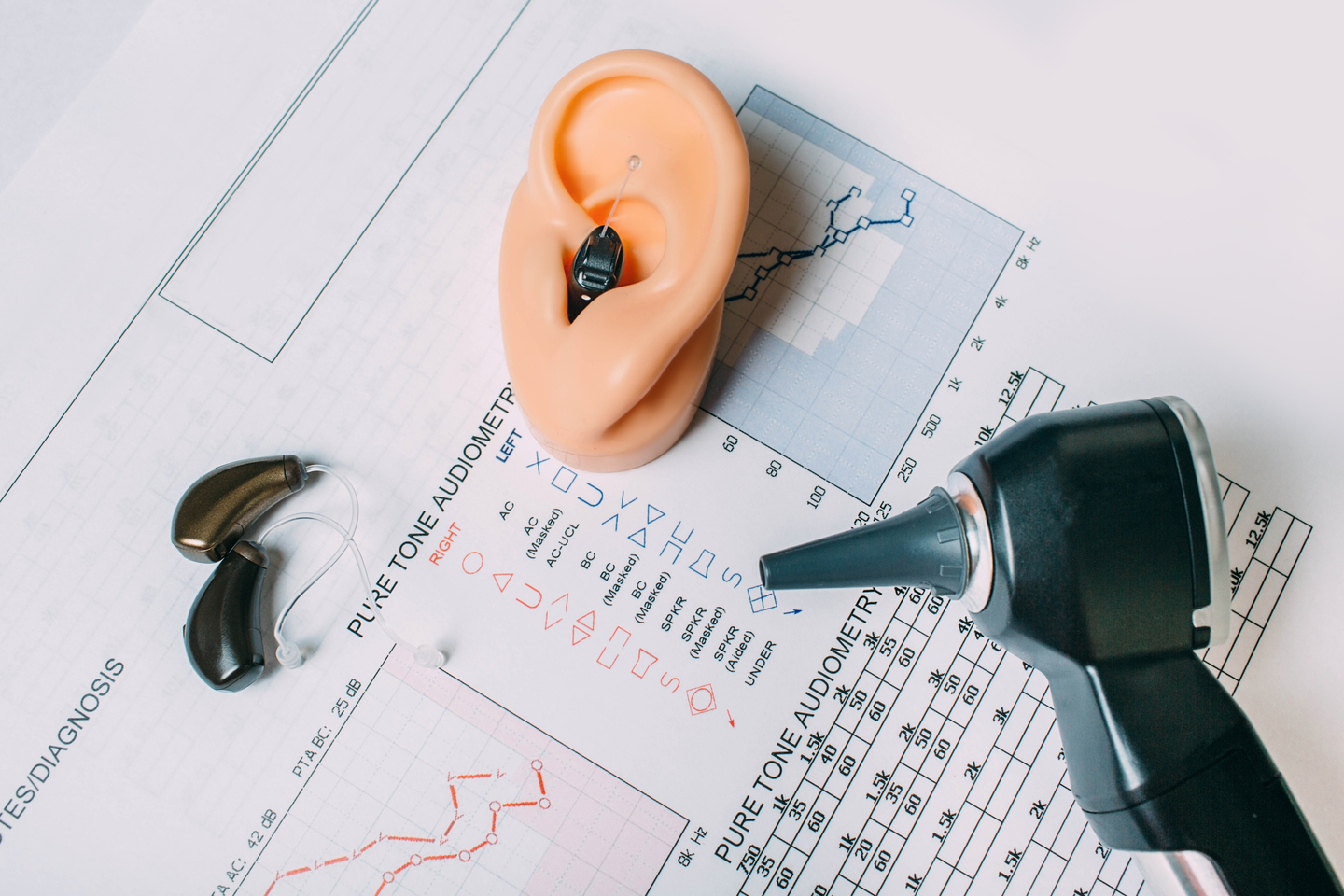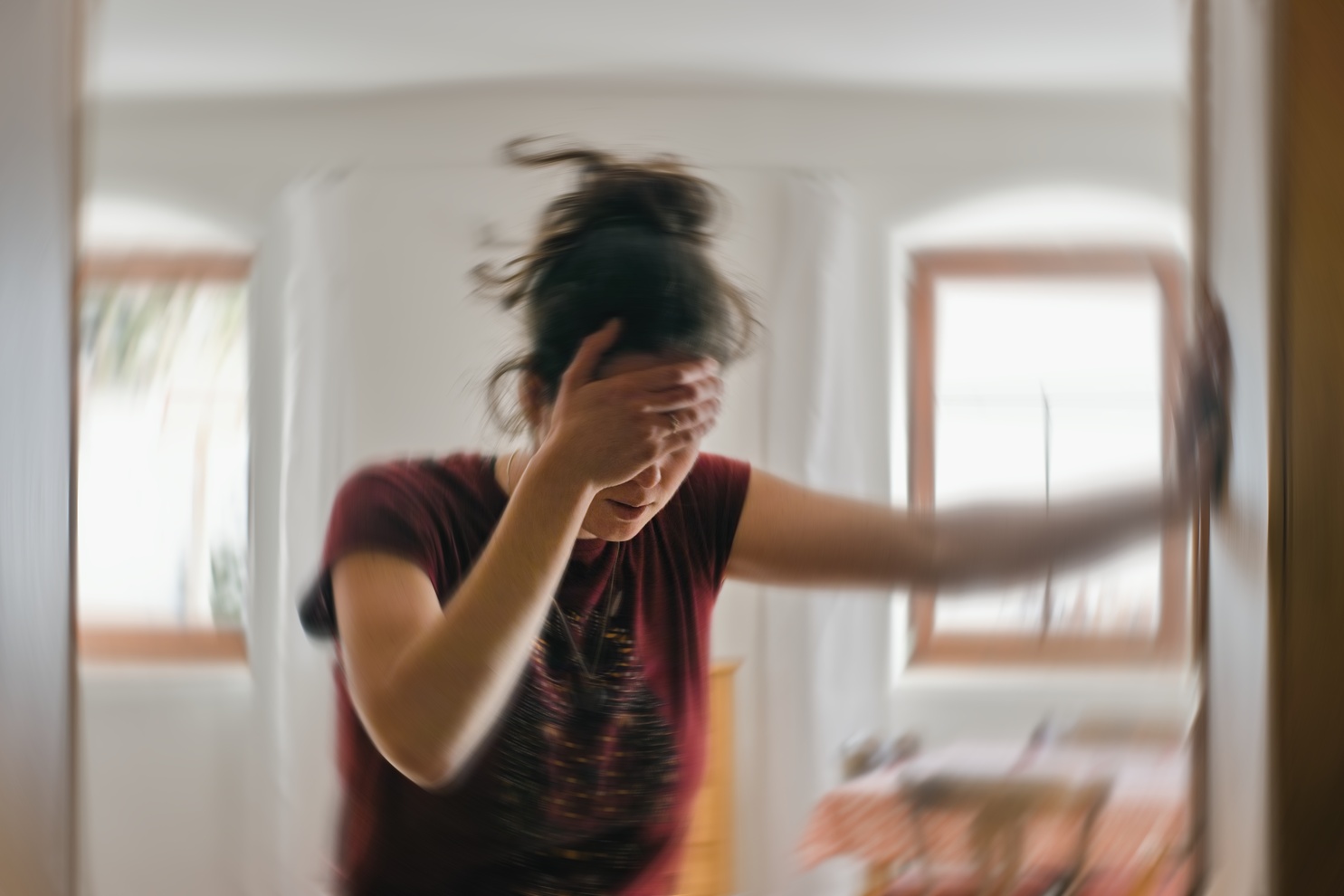Tinnitus
Understanding and Treating Tinnitus
“Turn That Noise Off!”
It’s described by patients as ringing, crickets, roaring, and clicking. Approximately 72 million have severe, unrelievable tinnitus.
The good news is that the brain is pliable and can be ‘reset’ into adjusting itself to the background noise. There are a variety of methods to treat tinnitus, but first, we must understand what causes it in the first place.
How does the ear work?
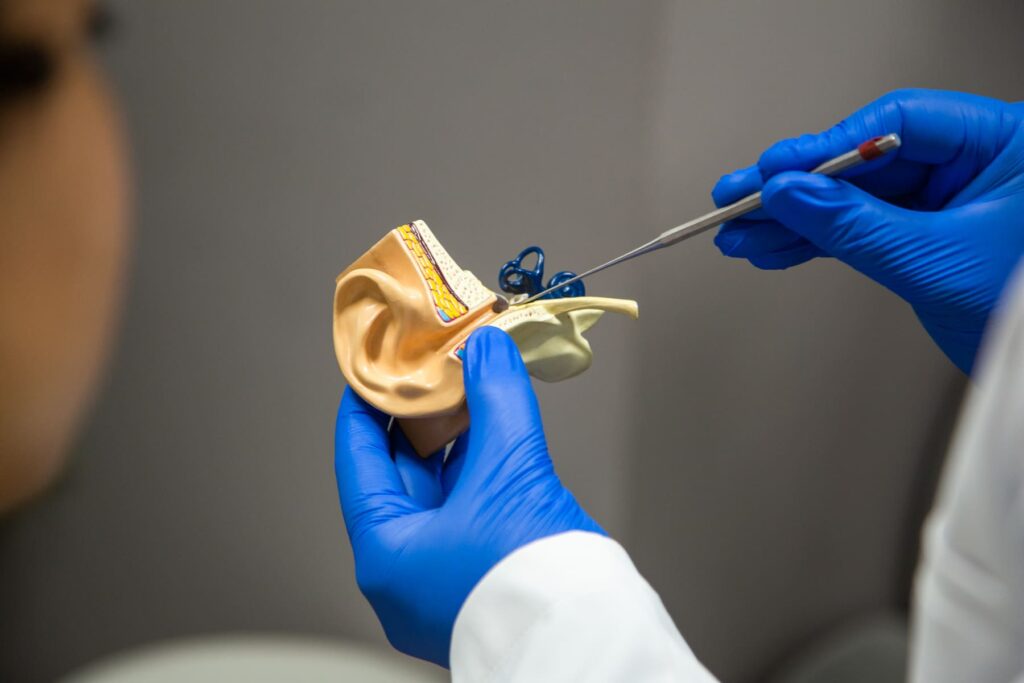
Take a moment and examine the incredible anatomy of how we hear. As you can appreciate, it’s extremely delicate. Sound waves enter the ear canal and vibrate the ear drum. This causes the middle ear mechanism (ossicles) to vibrate and send those waves into the inner ear and brain. It’s a chain reaction.
Tinnitus can be caused by a variety of pathologies. It is important to figure out the quality of your tinnitus so the doctor can better diagnose your problem. For example:
- Is the tinnitus high or low pitched?
- Is the tinnitus constant or pulsatile?
- What makes it better or worse?
- Is it louder in quiet environments?
- Do you think you have hearing loss?
- Does it affect your concentration or ability to work?
- How loud is the tinnitus?
Sometimes, tinnitus can be caused by something as simple as wax on the eardrum. Other times, there can be a problem with the hearing nerve. Various ear Balance diseases such as Meniere’s have tinnitus associated with them. Exposure to loud noises such as guns firing, rock concerts, and chain saws can create tinnitus. Effects from excessive drugs or alcohol also play an important part in causing tinnitus.
It is extremely important for your doctor to find the cause of the tinnitus before trying to randomly treat it!
What are some diagnostic tests that can be done?
- Audiogram
- Tympanogram
- Tinnitus matching test
- MRI of the brain and internal auditory canals
- CT scan of the temporal bones
- Blood labs
- Balance testing
What are some therapeutic options?
Currently there is no ‘magic bullet’ for the treatment of tinnitus, as it can originate from multiple factors. It is important to speak with your otologist regarding physical exam and diagnostic tests to perform before pursuing the appropriate therapy for the type of tinnitus you may have.
Some options include:
Lifestyle Changes:
De-stress, detect and deliver a better way of living to help decrease your tinnitus. It has been proven that anti-oxidants and vitamins will improve your life, and it can improve your hearing too. Meditation, yoga, exercise, and even acupuncture have been proven to help with tinnitus.
Control of Diet
This is probably the most effective and easiest first step in trying to control tinnitus. It is important to watch out for common triggers that can make tinnitus much worse than it already is. These triggers include:
- Coffee
- Tea
- Salt (sodium)
- Alcohol
- Smoking
- Wine
- Sodas
Hearing Aids
The most common cause of tinnitus is hearing loss. Therefore, it is not uncommon for the tinnitus to disappear once the patient is fitted with a proper hearing aid.
Tinnitus Matching and Retraining Therapy
This is performed through a variety of apps that match the frequency of your tinnitus and play it back to you during the day or at night to try and make your brain adapt to the tinnitus.
Melatonin
Research shows that the effects of this over-the counter enzyme help relieve tinnitus particularly for those with difficulty sleeping. (available at the local GNC store).
N-Acetylcysteine (L-NAC)
This compound has also showed some benefit when tested in vitro and in animals. (available at the local GNC store).
Arches Formula
This is another supplement that can be purchased online and in our clinic to help treat tinnitus. (Available online)
Accupuncture
This has some promising subjective improvement in both tinnitus and anxiety symptoms.
Electrical Stimulation
A mild, electrical current applied directly to the external ear has been proven to relieve tinnitus in some cases much like acupuncture. It is applied with a gold, blunt- tipped probe that is used to distribute the current to specific locations around the outer ear (pinna). The amount of current is adjusted to the patient’s own comfort level
Cognitive Therapy
Mind over matter. This type of therapy is often used in conjunction with other modalities. Essentially it is biofeedback taking your mind off the tinnitus refocusing, and redirecting your thoughts.
Psychotherapy
Since depression and anxiety can increase tinnitus, the use of psychotherapy works with the mind and helps reduce the tinnitus by refocusing. Additionally, certain medicines can help.
Acoustic Therapy
Sometimes called “masking”, acoustic therapy works by introducing alternative sounds to you via music or the sounds of soft ocean waves, or meditative instruments. Again, the sounds of your tinnitus are overridden by other sounds so you mind does not focus on the negative. There are specific machines and compact discs available to provide the masking effects.



